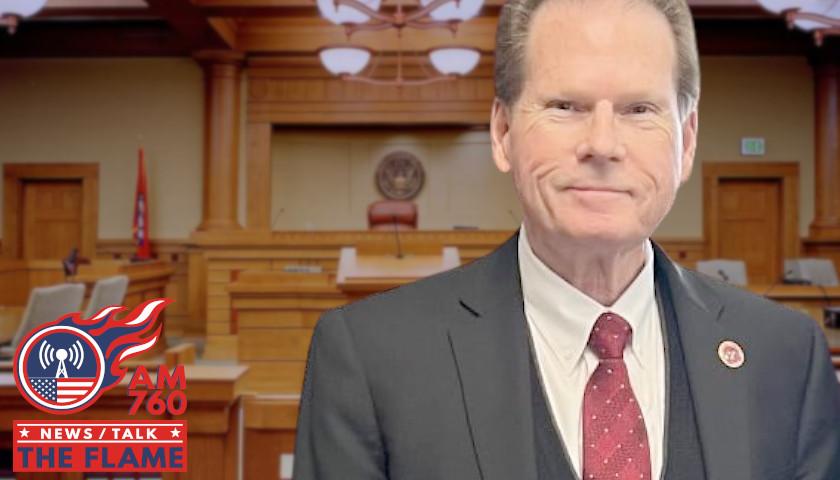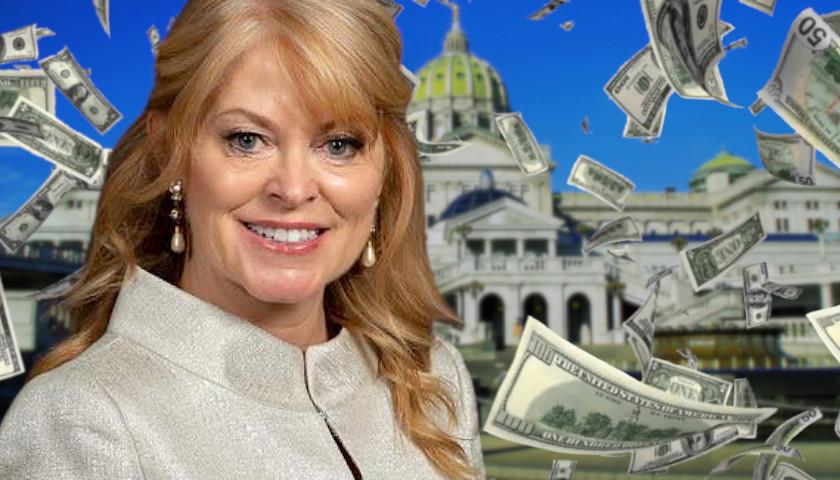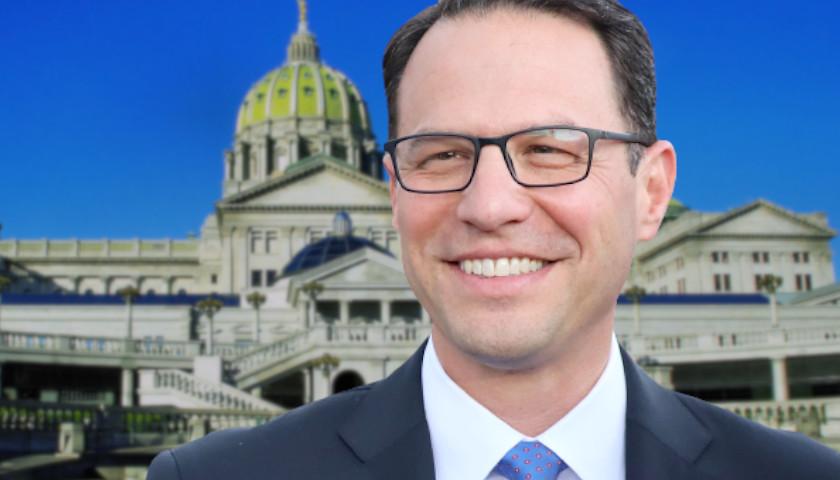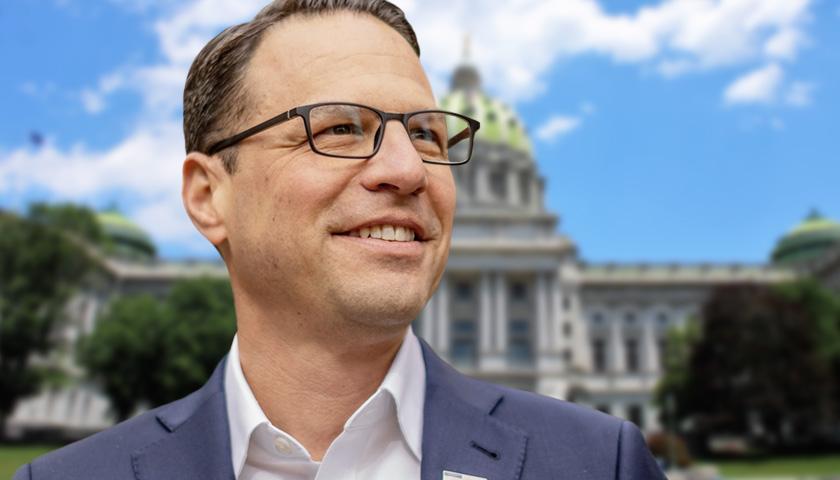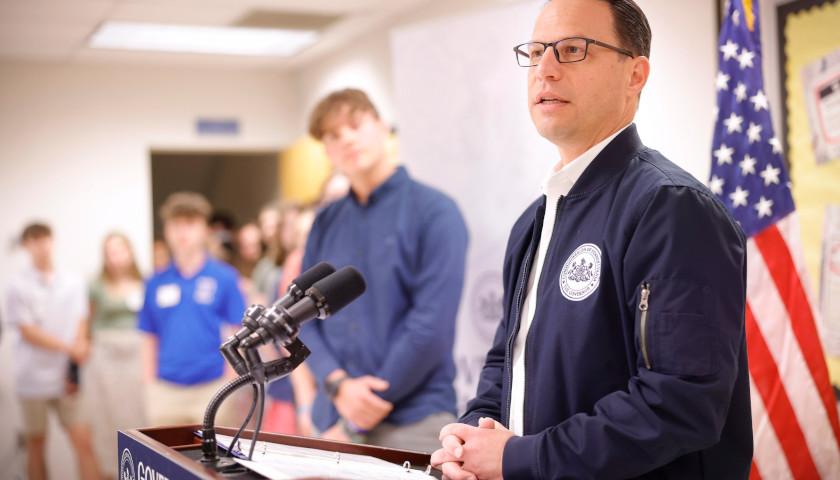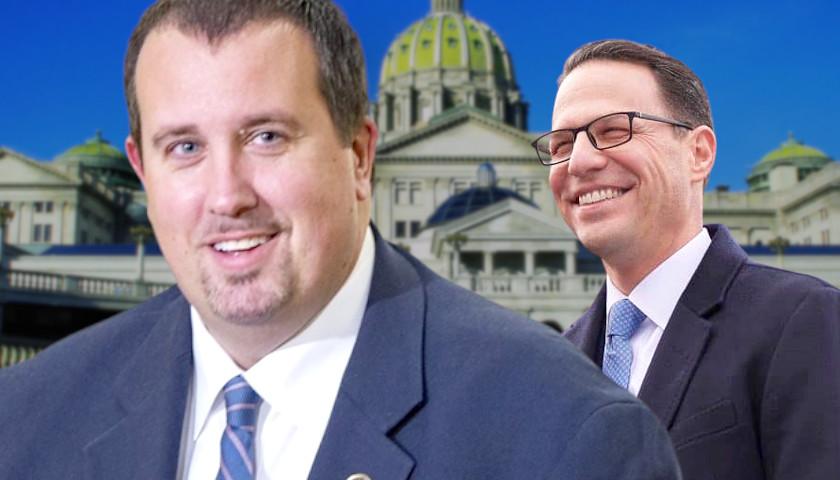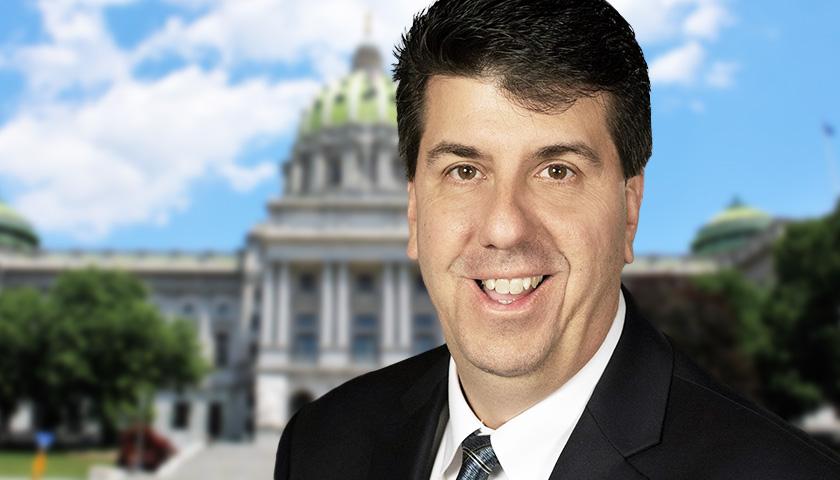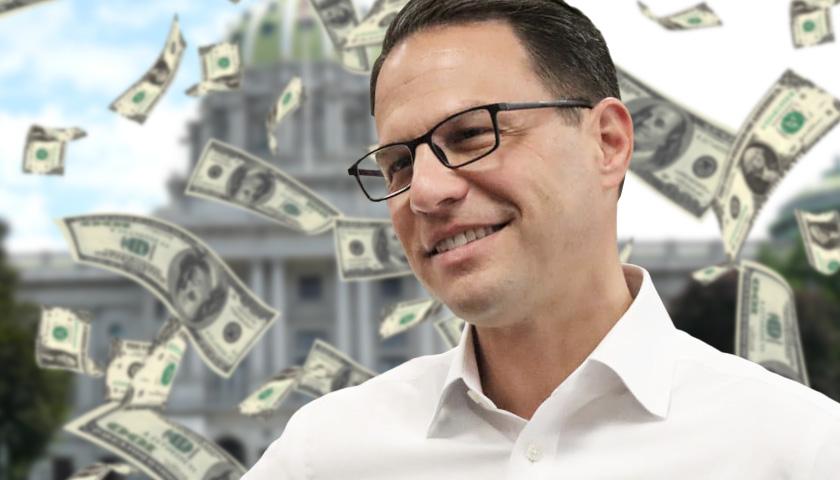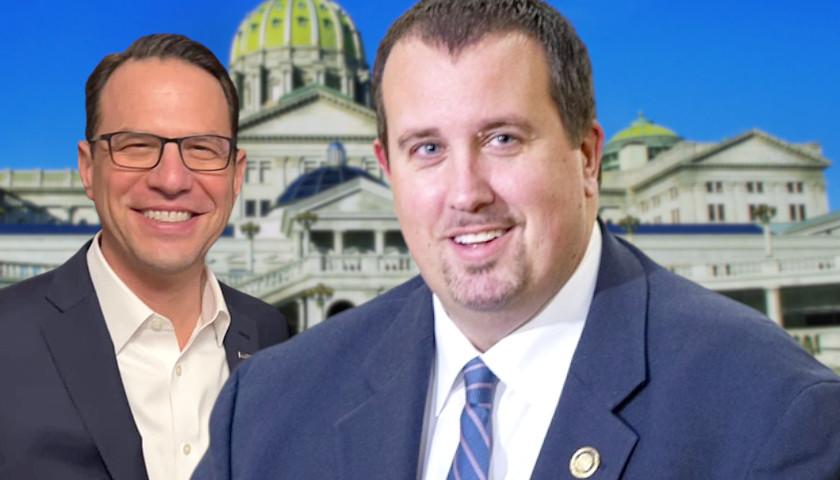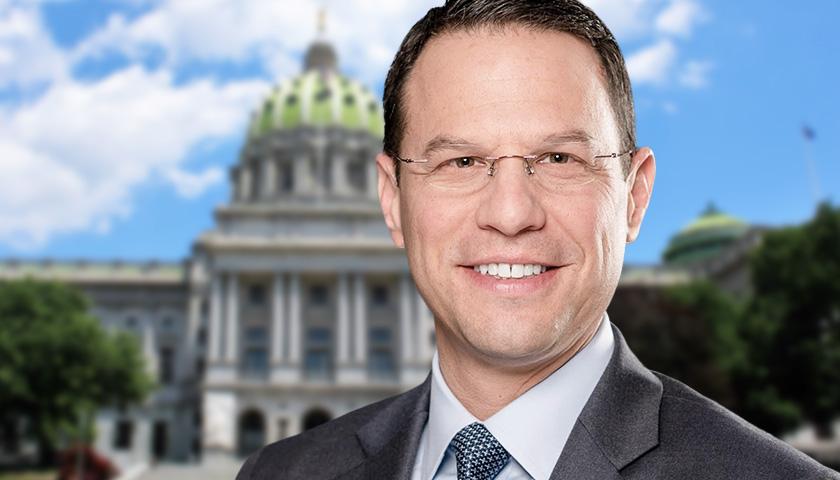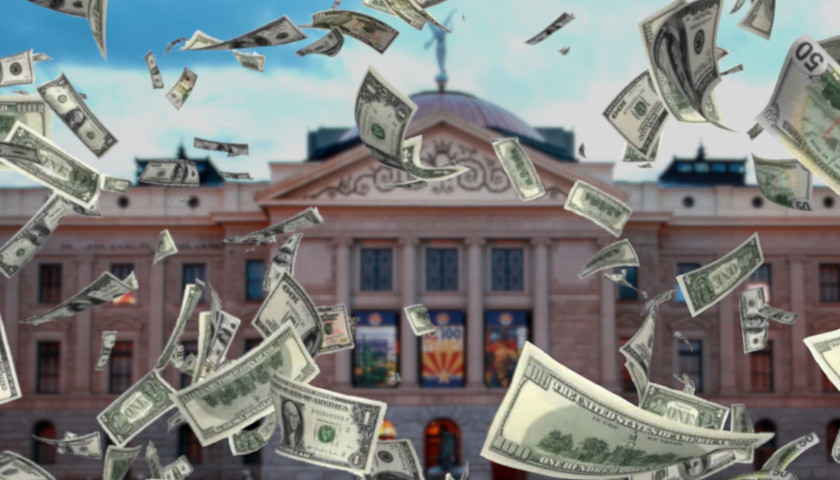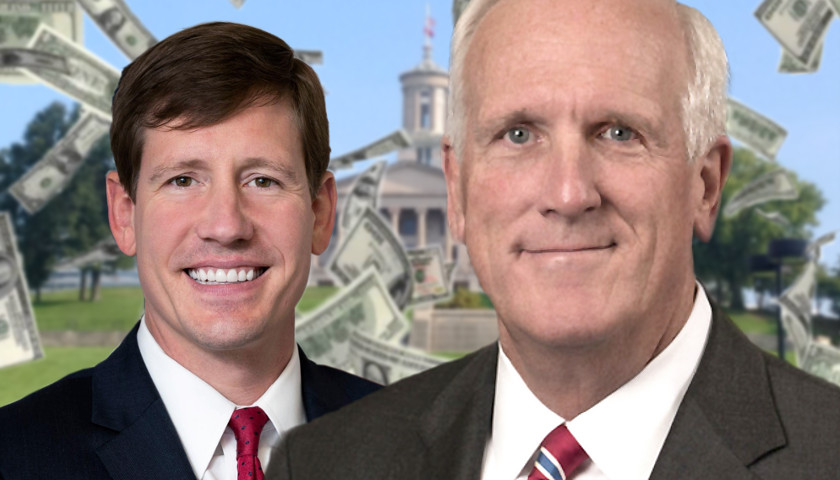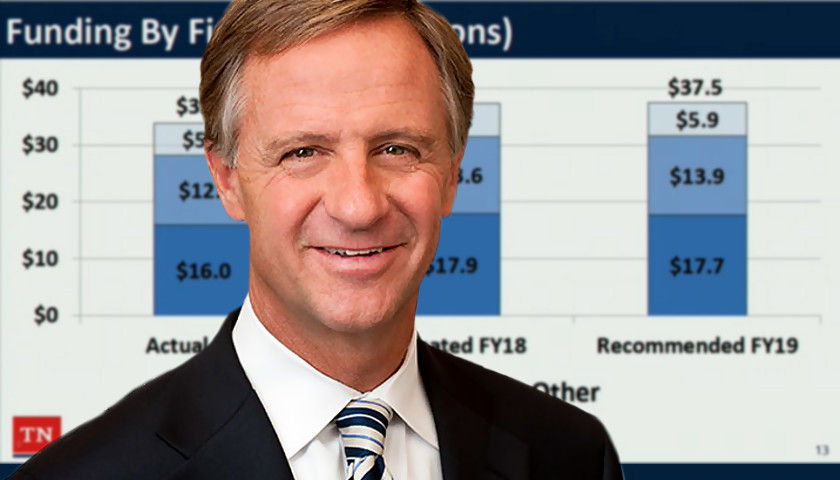State Senator Joey Hensley (R-Hohenwald) joined The Tennessee Star Report with Michael Patrick Leahy in-studio on Thursday to discuss new allegations by a group of out-of-state companies that say they are owed for taxes they paid to the tune of more than a billion dollars. The companies’ claims stem from a 1932 law that applies a different formula to in-state companies versus firms located outside of Tennessee.
Read the full storyTag: rainy day fund
Pennsylvania Using New Emergency Savings Account Strategy
The Pennsylvania Treasury switched investment strategies this week to grow the state’s emergency savings account.
The change of course comes after three years of hefty deposits from the General Assemby in what’s known as the Rainy Day Fund – a $6.1 billion account meant to sustain operations during economic downturns. Since 2021, the balance has increased 25-fold, taking the state’s ability to fund the government from two days to 48 days.
Read the full storyPennsylvania Rectifies Its Rainy Day Fund
Pennsylvania’s rainy day fund will receive a big deposit after lawmakers settled a dispute with the governor’s administration this week over the definition of “surplus.”
State Treasurer Stacy Garrity said the $898 million contribution into the account, which helps agencies and programs withstand economic downturns, will keep the government operational for 48 days before running out of money – 3.5 days above the national median.
Read the full storyMath Behind Pennsylvania’s Rainy Day Fund Deposit in Dispute
Lawmakers and Gov. Josh Shapiro find themselves at odds once again over the amount the administration deposited into the state’s Rainy Day Fund.
The Office of the Budget said Thursday it transferred $411.6 million into the savings account, or about 10% of the $4.1 billion revenue surplus left over on June 30 – the end of the prior fiscal year.
Read the full storyPennsylvania GOP Senate to Tackle Budget That Overspends Shapiro Proposal by $1.1 Billion
At first, Keystone State Republicans viewed Democratic Governor Josh Shapiro’s Fiscal Year 2023-24 budget proposal with mere skepticism. This week, state House Democrats larded it with an extra $1.1 billion and passed it, making a fray between their chamber and the Republican-run Senate even more probable.
The nearly $47 billion spending plan, approved by representatives along party lines, hikes spending by $5.7 billion over the current fiscal year, a more than a 13-percent increase. Members of the Republican minority excoriated their Democratic colleagues for rushing the plan to passage within six hours of its completion, a move they said reflected poor transparency. Representative Doyle Heffley (R-Weissport) spoke for many in his party when he called the House-passed plan a “poison pill” for Pennsylvania’s economy.
Read the full storyPennsylvania GOP Officials Want Shapiro to Shore Up Rainy Day Fund
High-ranking Republican Pennsylvania officials sounded off on Wednesday in the state Capitol Building against Governor Josh Shapiro’s budget legislation which would deplete state reserve funds in five years.
Pennsylvania Treasurer Stacy Garrity (R) and House Appropriations Minority Chair Seth Grove (R-York) observed that the scenario is rather sunny insofar as the Democratic governor’s projections don’t account for a potential recession. Shapiro’s calculations also assume government spending won’t surpass 2.36 percent in the next five years, a supposition so rosy it provoked Grove to snicker slightly.
Read the full storyState Representative Urges Pennsylvania Governor to Attack Deficit with Zero-Based Budgeting He Used Before
Going into annual budget deliberations, Pennsylvania faces a structural deficit exceeding $1 billion, a problem Republicans say Governor Josh Shapiro (D) should address with a concept he once embraced: zero-based budgeting.
The practice involves setting initial the budget amount at zero and forcing agencies to justify each proposed expenditure rather than using the previous year’s budget as a base upon which to request spending increases.
Read the full storyProposal Uses Pennsylvania Rainy Day Fund To Pay Down Unfunded Pension Liability
A Pennsylvania lawmaker wants to use the state’s Rainy Day Fund to pay down the state’s unfunded pension liabilities that total more than $60 billion.
State Representative Joe Ciresi (D-Royersford) is asking colleagues to cosponsor a bill to move $670 million from the fund to the Public School Employees’ Retirement System (PSERS) and $330 million to the State Employees’ Retirement System (SERS). A memorandum describing his legislation avers it could save local real-estate taxpayers $2.1 billion over the next 20 years.
Read the full storyPennsylvania Gov. Shapiro Would Deplete Rainy Day Fund While State Expert Suggests It Should Be Larger
Pennsylvania’s official fiscal watchdog this week told state senators that the commonwealth’s Rainy Day Fund contains less money than many experts recommend — and that’s before Democratic Governor Josh Shapiro’s long-term fiscal plan burns through it.
The state Treasury currently keeps $5.7 billion in the Rainy Day Fund to help public institutions endure revenue losses resulting from economic downturns. According the the department’s own calculations, current reserves in this account could sustain General Fund expenditures for just under 43 days.
Read the full storyPennsylvania House Appropriations Republican: Projected Shapiro Deficits Too Large
Unlike his fellow Democrat and predecessor Tom Wolf, Pennsylvania Governor Josh Shapiro hasn’t asked for tax increases as part of his first budget request. But the ranking Republican on the state House Appropriations Committee said on Wednesday that tax hikes likely await Pennsylvanians in a few years if lawmakers don’t pare back Shapiro’s spending proposal.
“We are facing massive structural deficits,” Representative Seth Grove (R-York) told reporters at the GOP Appropriations Committee Office in Harrisburg. “It’s something that is on our minds here in the General Assembly.”
Read the full storyShapiro Says Pennsylvania Republican Lawmakers ‘Are Praising’ His Budget Proposal While Omitting Criticisms
Pennsylvania Governor Josh Shapiro (D) is already claiming high-ranking Republicans “are praising” his first budget. Those Republicans’ actual remarks tell a different story.
A press release from the governor selectively quotes eight GOP state lawmakers’ reactions to the budget he unveiled last week. While the snippets accurately capture areas of agreement, they leave out decidedly negative sentiments the Republicans voiced about the $45.9 billion plan which would hike state spending by about four percent over the current level.
Read the full storyShapiro’s Planned Spending Increase Alarms Pennsylvania Budget Hawks
Pennsylvania Josh Shapiro asked the state General Assembly members on Tuesday to support his requested $45.9 billion budget, which would increase spending by approximately 4 percent over current outlays.
The governor insisted he based his plan for Fiscal Year 2023-24 on “conservative” revenue estimates. And he did include some provisions appealing to anti-taxers and free-marketers including nixing the state cell-phone tax, a move he estimates would save Pennsylvanians $124 million annually.
Read the full storyAll-Star Panelist Aaron Gulbransen Weighs In on Nashville Metro Council’s Resolution to Fund Planned Parenthood
Tuesday morning on The Tennessee Star Report, host Leahy welcomed all-star panelist, official guest host, and Faith and Freedom Coalition’s State of Tennessee Director Aaron Gulbransen in-studio to comment upon the recent resolution attempting to fund Planned Parenthood of Tennessee and Northern Mississippi.
Read the full storyArizona Legislative Report Reveals ‘Extraordinary’ Fiscal Growth in State
A new report from the Arizona Legislature’s Joint Legislative Budget Committee shows Arizona is in great economic condition, breaking records. Revenues from taxes are high or better than projected, with significant gains expected in the future, and personal income is growing at the fastest pace since 1985. It comes after Arizona passed historic tax cuts, reducing the personal income tax to the lowest flat tax in the country at 2.5%. However, some of the rosy picture is due to COVID-19 relief.
Governor Doug Ducey issued a statement about the report, “It paints a picture of a state economy that has emerged from the COVID-19 pandemic not only in great shape, but poised to achieve even greater accomplishments in the years ahead. The ‘extraordinary growth’ Arizona saw in Fiscal Year 2021 is positive news for every Arizonan. We are leading the way in the nation’s economic recovery.”
Read the full storyTennessee Attorney General: Rainy Day Fund Monies Excluded From the Copeland Cap
Tennessee’s Attorney General Herbert Slatery issued an opinion in 2018 in response to a legislator’s inquiry indicating that allocations to the reserve for revenue fluctuation account, otherwise known as the Rainy Day Fund, do not count toward the Copeland Cap. State Senator Brian Kelsey (R-Germantown) (pictured left) requested an opinion from the state’s Attorney General (pictured right) to two separate questions on the topic. Specifically, Senator Kelsey’s two questions to the Attorney General were: In determining whether “the rate of growth of appropriations from state tax revenues exceed[s] the estimated rate of growth of the state’s economy” under article II, section 24 of the Tennessee Constitution, are funds that are allocated to the “reserve for revenue fluctuation” included in “appropriations from state tax revenues”? (emphasis added) And In determining whether “the rate of growth of appropriations from state tax revenues exceed[s] the estimated rate of growth of the state’s economy” under article II, section 24 of the Tennessee Constitution, are funds previously allocated to the “reserve for revenue fluctuation” included in “appropriations from state tax revenues” in the year in which the funds are withdrawn? (emphasis added) The Attorney General opined in 18-05 that the answer to both questions…
Read the full storyAfter Seven Years of Record Growth, Governor Haslam’s Final Budget For 2019 Is Flat From 2018
For the first seven years of Governor Haslam’s term, his budget for the State of Tennessee grew a record $30.2 to $37.3 billion, but the upcoming budget for 2018-19, Haslam’s final year in office, is basically flat at $37.5 billion. Budget appropriations are stated in three categories: State at $17.7 billion; federal at $13.9 billion and $5.9 billion from “other.” Over the past seven years, the state portion of the budget grew an average of four percent with a range of a $40 million reduction in 2014-15 to the highest increase of $1.5 billion in 2017-18, but this year that portion of the budget is reduced an eight-year record of $190 million. State Commissioner of Finance and Administration, Larry Martin, explained in his presentation on the 2018-19 budget to the Senate Finance Ways & Means Committee Tuesday the process for forecasting revenue for the state. The State Funding Board, in November of each year, receives forecasts from four economists, including the State Department of Revenue, from which recommendations are made on the likely growth trends. The funding board provides a projected growth range to the governor, which was 2.7 to 3.2 percent for this year. The governor then has prerogative…
Read the full story
